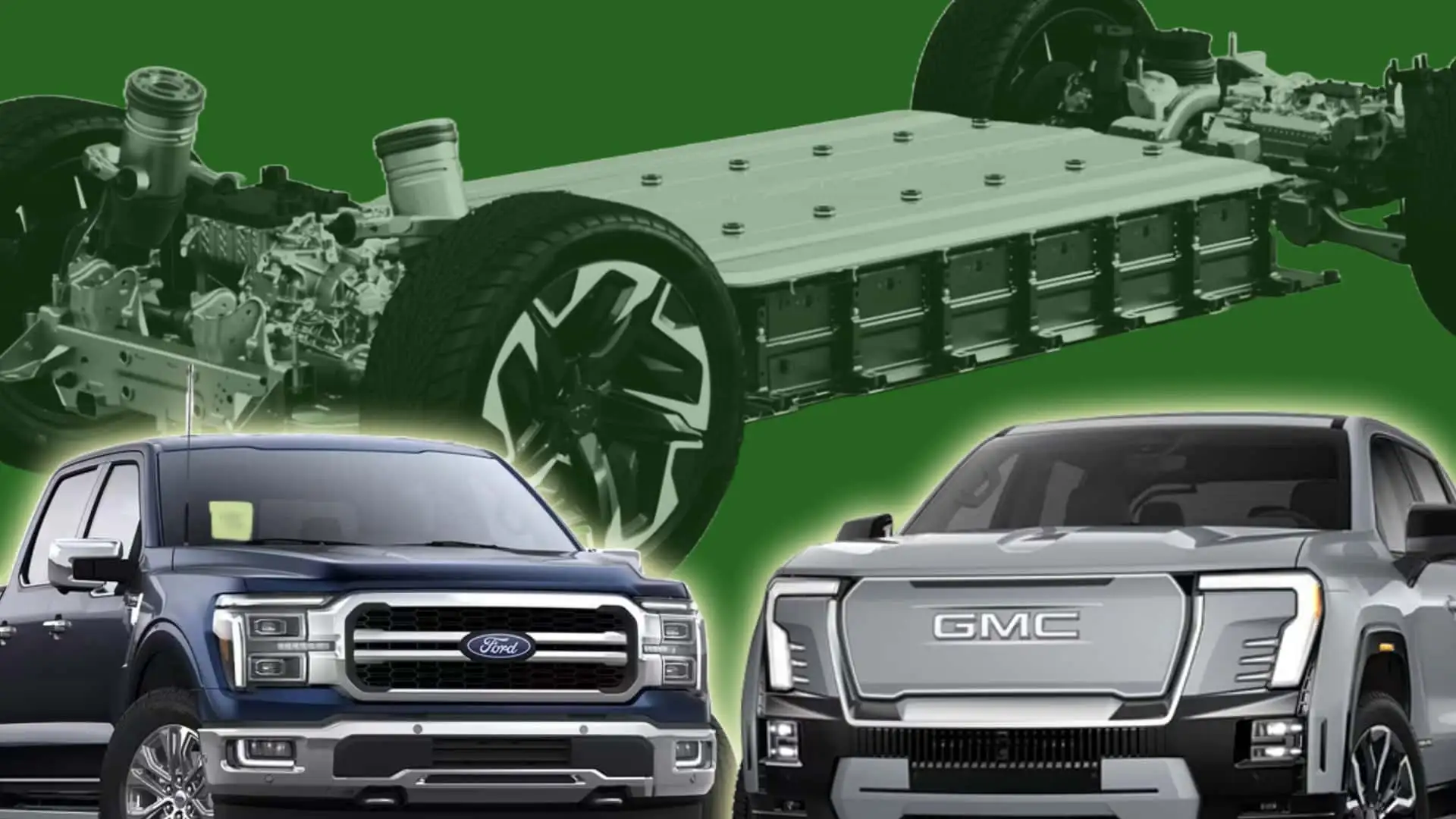GM Thinks It Can Make 'Big Battery' EVs Work. Ford Isn't So Sure

There's no question that the GMC Sierra EV can do a lot. With an estimated 440 miles of range, more power than any Sierra has ever had and towing and hauling specs effectively on par with gas trucks, it makes one of the most convincing cases for truck owners to move on from fossil fuels.
All those specs come with a big catch—literally, in this case. They happen thanks to its huge electric battery, estimated at 200 kWh or more. The same is true of the related GMC Hummer EV and Chevy Silverado EV: General Motors says its truck customers want range, and right now, the best way to do that is with big batteries.
But Ford, GM's perennial rival in the never-ending truck wars, seems to be singing a different tune lately. In recent months, Ford CEO Jim Farley has insinuated a strategy shift around future large Ford trucks and SUVs, saying that going with big batteries to power big vehicles may always be cost-prohibitive.
“These huge, enormous EVs are never going to make money: the battery is $50,000, even with low-nickel, LFP chemistry," Farley said at the Aspen Ideas Festival earlier this summer. "They will never be affordable.” Indeed, the automaker has announced it will delay a future EV truck and three-row electric SUV to 2027.
He's been extolling variations on that idea for a while now, which is why the forthcoming Ford "skunkworks" program apparently aims to battle Tesla and China using smaller, more affordable EV options. Meanwhile, Ford's next Super Duty trucks seem poised to go hybrid, which is where the automaker has seen a lot of success lately with the F-150 as well.
So which automaker is "right" here? And what does "right" even mean?

